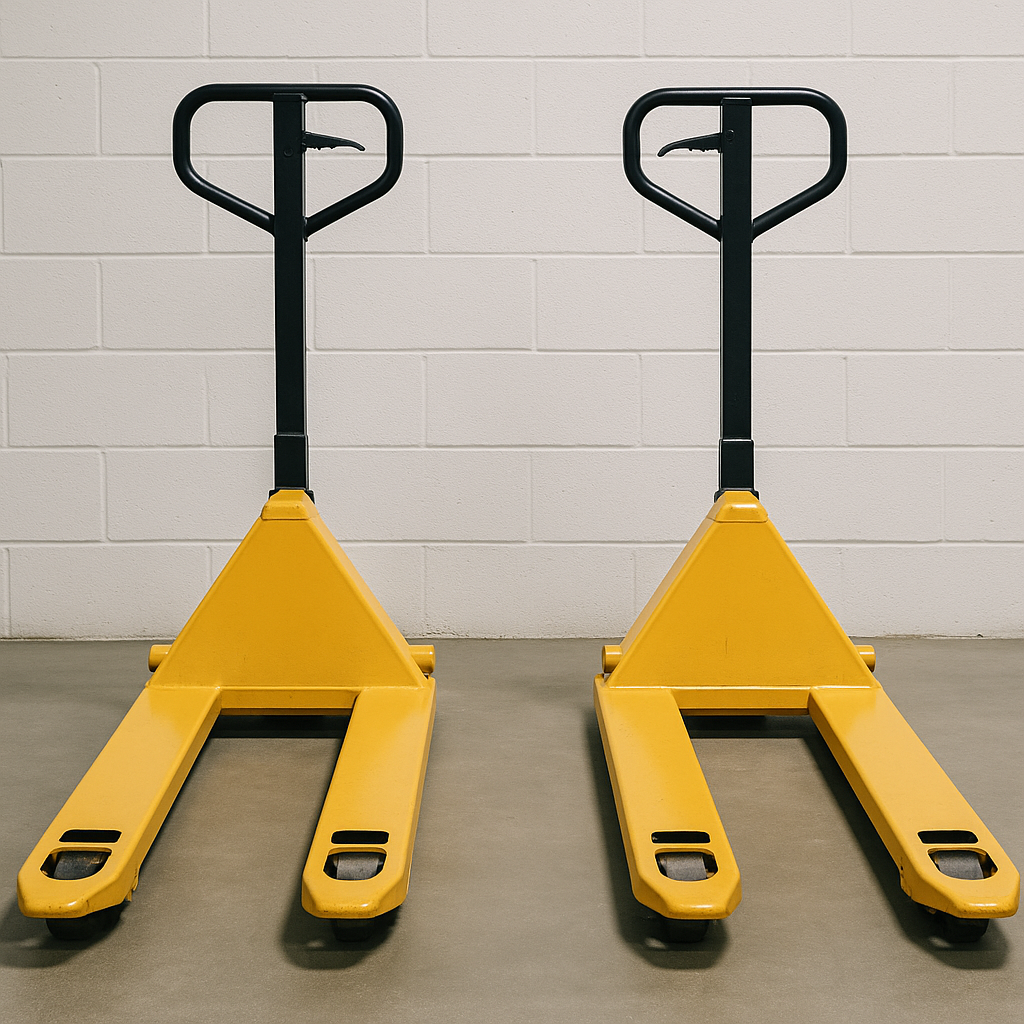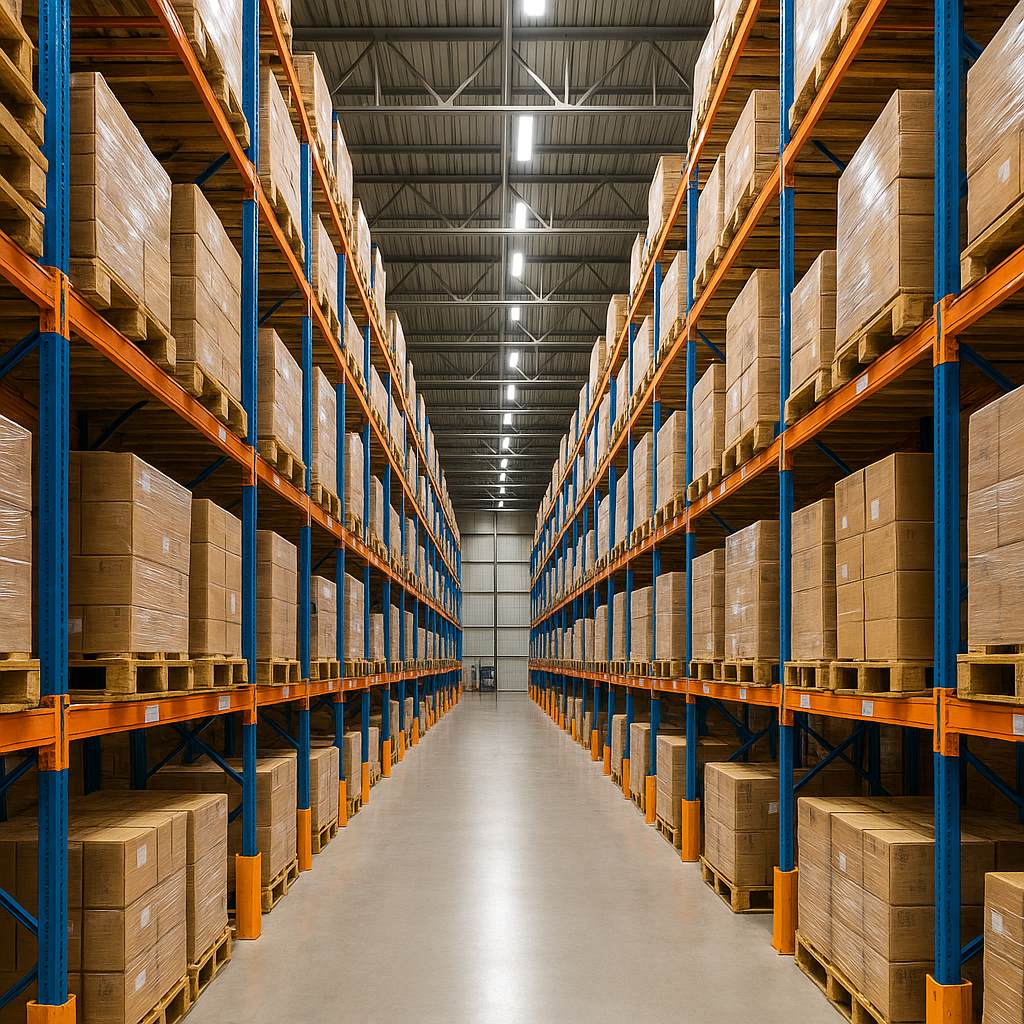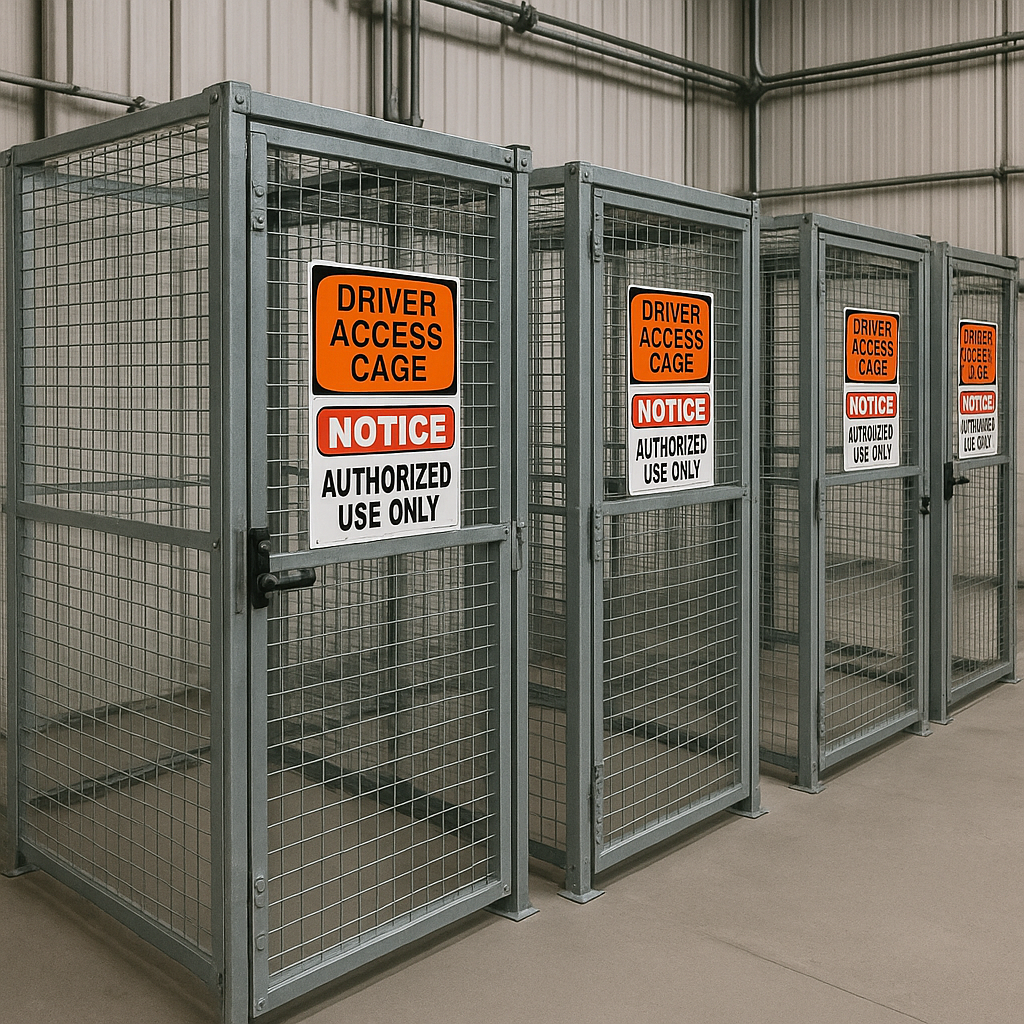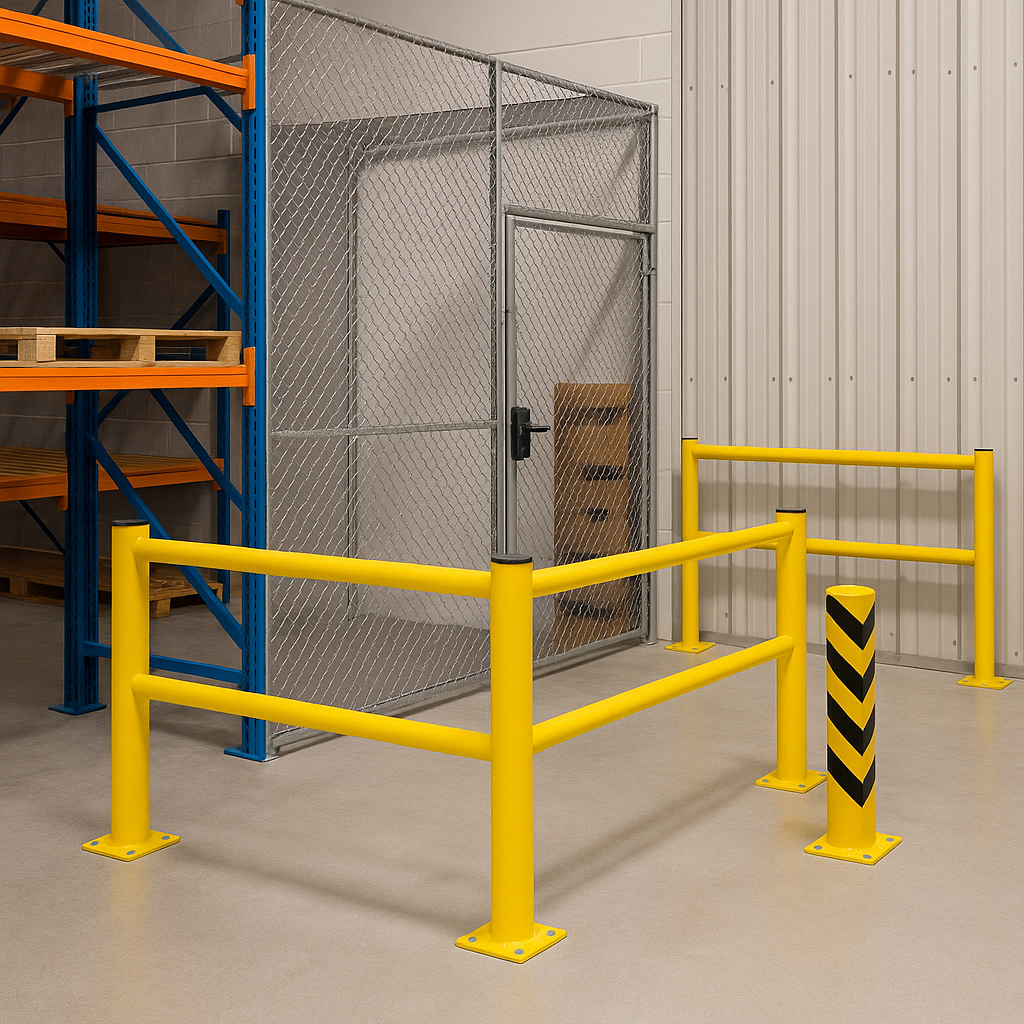When managing a warehouse or construction site, one essential tool is the pallet jack—a simple yet effective device for moving heavy loads over short distances. Whether you’re handling pallets of stock in a warehouse or working on rough terrain at a job site, selecting the right type of pallet truck for your needs is crucial. But before you make that decision, it’s important to understand the factors that influence how much a pallet jack costs and how you can invest wisely in the right equipment for your operation.
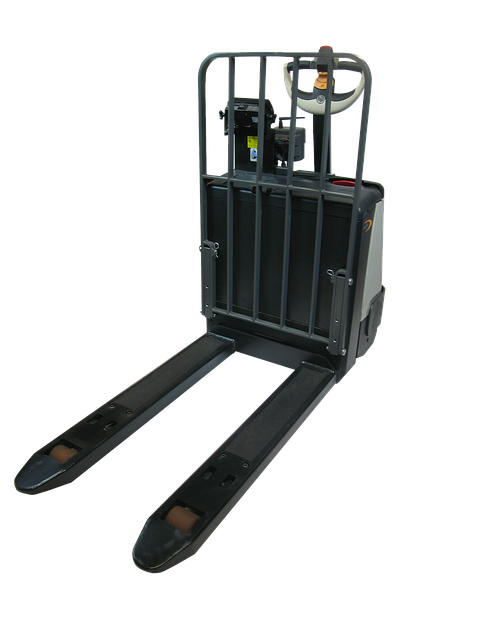
What is a Pallet Jack and Why is It Essential?
A pallet jack, often referred to as a pump truck or pallet truck, is the most basic form of material handling equipment designed for moving pallets. It is used primarily in warehouses, factories, and construction sites where heavy loads need to be transported over short distances.
Manual pallet jacks are the basic form of this equipment, relying on the operator to pump the handle to raise the pallet slightly off the ground so it can be wheeled to another location. On the other hand, electric pallet jacks are powered by a motor, making it easier to operate and more suitable for moving loads over long distances. These pallet jacks come in various models, each with unique advantages depending on the intended use.
The versatility of pallet jacks allows them to be used in several applications, from loading trucks and stock management to moving pallets across wet or uneven surfaces in outdoor settings. This makes them a crucial tool for improving productivity and reducing the physical effort required from workers.

Factors That Influence Pallet Jack Costs
When asking, “How much does a pallet jack cost?” the answer depends on several factors, including the type of pallet jack, its capacity, and its durability. Below are the main factors that influence the cost:
- Type of Pallet Jack:
- Manual pallet jacks are the most affordable, ranging from $200 to $600. They offer low maintenance and are ideal for moving pallets over short distances in smaller warehouses or facilities.
- Electric pallet jacks, on the other hand, are more expensive, generally costing between $2,500 and $5,000 or more. These units are suitable for larger operations that frequently require the movement of heavy loads over greater distances. They are operated by a motor, making them easier to use for workers and increasing overall productivity.
- Capacity: The load capacity of a pallet jack will also impact its price. A standard manual pallet jack can typically lift loads between 5,000 and 6,000 lbs, while electric models often handle similar capacities but with less physical effort required from the operator. If you need a pallet truck for moving heavy loads exceeding these limits, you may need to invest in specialized models, which can drive up the cost.
- Durability and Materials: The materials used in the construction of the pallet jack influence its durability and price. For example, a pallet truck with reinforced wheels for rough terrain or wet environments will likely cost more due to its rugged design. Models designed for extreme durability, such as those used in construction sites or factories, typically have reinforced components and pumps, making them last longer under heavy use.
- Additional Features: Some pallet jacks come with extra features that can increase their price. For example, pallet jacks with integrated scales for weighing loads during transport can add a significant premium. Similarly, jacks with advanced steering mechanisms or adjustable forklift capabilities are often more expensive due to their specialized nature.
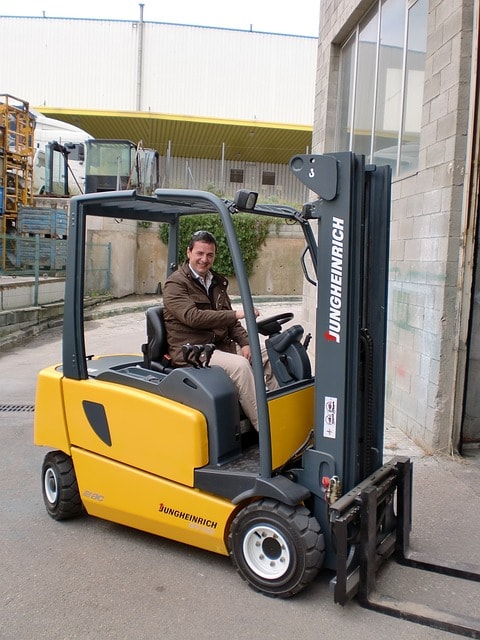
Comparing Pallet Jack Types and Their Costs
When deciding which pallet jack to purchase, it’s essential to consider not just the upfront cost but the long-term benefits it will bring to your warehouse or facility.
- Manual Pallet Jacks: These are the most affordable option, ranging from $200 to $600. They are best suited for light-duty operations where workers need to move pallets over short distances. While they offer low maintenance and are relatively lightweight, they require manual effort, which could reduce efficiency in larger warehouses.
- Electric Pallet Jacks: These pallet trucks offer significant advantages in terms of productivity, especially in larger facilities that require the movement of heavy loads over long distances. Although more expensive, usually between $2,500 and $5,000, their ease of use and ability to handle heavy loads with minimal physical effort can save both time and money in the long run. These jacks are also ideal for transporting pallets in high-traffic areas and reducing operator fatigue.
- High-lift Pallet Jacks: If your warehouse requires stacking pallets or lifting them higher than standard models allow, high-lift pallet jacks are an excellent investment. They are typically more expensive due to their specialized design, which allows for pallets to be raised to greater heights, making them ideal for storage in pallet racking systems.
How to Determine the Right Pallet Jack for Your Warehouse
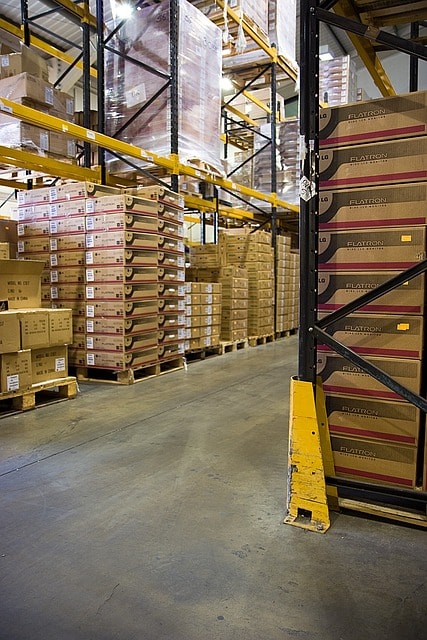
When selecting a pallet jack, you must consider your specific needs to avoid overspending or purchasing a unit that doesn’t fully meet your operational requirements. Here are some factors to guide your decision:
- Warehouse Size and Layout: The size and layout of your warehouse or facility will influence whether you need a manual pallet jack or an electric pallet truck. Smaller warehouses with light-duty loads may only need a manual unit, while larger facilities with long aisles and heavy loads will benefit from an electric model.
- Frequency of Use: How often will the pallet jack be used? If your operations involve frequently moving pallets, investing in a high-quality electric pallet jack may be more cost-effective in the long run, as it reduces operator fatigue and increases efficiency.
- Type of Load: Consider the type of loads you handle regularly. If you’re primarily moving light materials, a manual pallet truck may suffice. For heavy loads, an electric pallet truck will save time and effort.
- Flooring Conditions: Are you dealing with rough terrain or smooth concrete floors? The type of flooring in your warehouse will affect which pallet jack is most suitable. For wet or uneven surfaces, look for models with durable wheels designed for more challenging environments.
Long-Term Cost Considerations
While the upfront cost of a pallet jack is an important factor, you should also consider the long-term expenses involved:
- Maintenance and Repairs: Manual pallet jacks generally require little maintenance, whereas electric pallet jacks may need more frequent servicing to ensure the motor, battery, and pumps are functioning properly.
- Energy Costs: Electric pallet jacks come with additional costs related to charging and replacing batteries. However, the increased productivity they offer can often offset these costs in high-volume operations.
- Durability: Investing in a durable pallet jack may cost more upfront but will save you money over time by reducing the need for replacements or repairs. This is particularly important in warehouses or construction sites where pallet trucks are subject to heavy use.
Conclusion
Understanding how much a pallet jack costs is only the first step in ensuring you make the right investment for your warehouse or facility. By considering the type of pallet truck, its capacity, and your specific operational needs, you can choose the right equipment that balances cost and long-term productivity. Whether you’re interested in a manual pallet jack for lighter loads or an electric pallet jack for increased efficiency, WT Hight can guide you in selecting the best solution for your business.
